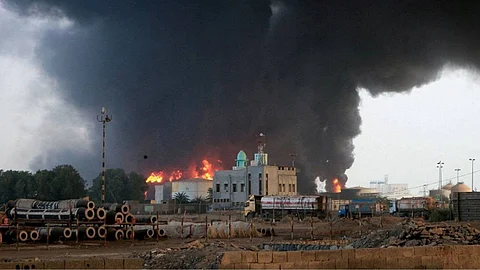

Israel’s navy launched its first seaborne attack on Yemen’s Hodeidah port on Tuesday, targeting docks in the Houthi-controlled city.
The Israeli military claimed the port is used by Houthis to transfer weapons, alleging it serves as a hub for Iran-backed “terrorist activity.”
Houthi media reported strikes on two piers, though no casualties were mentioned by either side.
The attack, executed with missile boats, marks a shift from Israel’s previous reliance on airstrikes, which included strikes on Hodeidah in May and the destruction of Yemen’s state carrier aircraft at Sanaa International Airport.
Israel’s Defense Minister Israel Katz warned of a potential “aerial and naval blockade” if Houthi attacks on Israel continue.
“We warned the Houthi terror organization that if they continue to fire toward Israel, they will face a powerful response and will be subjected to a naval and aerial blockade,” Katz stated on X.
The Houthis, who have fired missiles and drones at Israel since October 2023 in solidarity with Palestinians, recently targeted Ben Gurion International Airport, briefly halting flights.
Houthi official Nasruddin Amer dismissed the attack’s impact, writing, “It has no effect even on the morale of our people, who take to the streets weekly ... in support of Gaza.”
Hodeidah is a critical entry point for humanitarian aid, serving millions of Yemenis affected by the ongoing war that began in 2014.
The United Nations has raised alarms about disruptions to aid flows, with reports suggesting some vessels bypass U.N. inspections to smuggle military materiel.
The strikes follow a pattern of regional escalation, including U.S. attacks on Yemen earlier this year that killed 250 people before a ceasefire.
As tensions rise, the international community remains focused on the potential impact of further military actions on Yemen’s already dire humanitarian crisis.